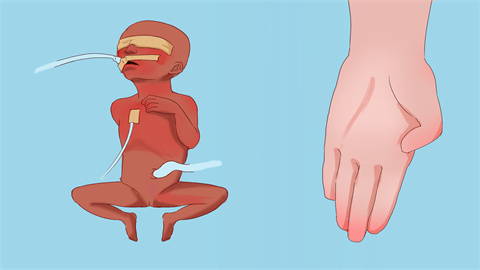What to do about poor swallowing function in premature infants
In general, the main treatments for poor swallowing function in preterm infants include swallowing exercises, dietary adjustments, physical therapy, medication, and nursing support. A detailed analysis is as follows:
1. Swallowing Exercises
Targeted training can improve the swallowing coordination of preterm infants. Common methods include oral motor exercises and swallowing stimulation exercises. Oral motor exercises involve gently massaging the infant's cheeks and gums and guiding tongue extension and sucking movements to strengthen oral muscle strength. For swallowing stimulation exercises, a sterile swab dipped in warm water can be used to gently touch the infant's throat to trigger the swallowing reflex. These exercises should be conducted under the guidance of professional medical staff to avoid inducing coughing.

2. Dietary Adjustments
The texture of food and feeding methods should be adjusted according to the infant's swallowing ability to reduce the risk of aspiration. When swallowing ability is weak, breast milk or special formula for preterm infants should be selected, and feeding via a nasogastric tube should be used to ensure adequate nutrition. As swallowing improves, transition gradually to bottle feeding. Control the flow rate during feeding, use anti-choking nipples, and burp the infant promptly after feeding to prevent discomfort caused by milk regurgitation.
3. Physical Therapy
Physical methods can improve swallowing-related muscle function in preterm infants. Neuromuscular electrical stimulation is commonly used. Low-frequency electrical currents gently stimulate throat muscles to promote muscle contraction and enhance the coordination and strength of swallowing muscles, thereby improving swallowing function. The current parameters should be adjusted based on the infant's weight and tolerance to ensure safety.
4. Medication
If poor swallowing function in preterm infants is caused by a specific disease, medication should target the underlying cause. For example, if swallowing discomfort is due to gastroesophageal reflux, medications such as simethicone emulsion, domperidone suspension, or hydrotalcite suspension may be prescribed to alleviate reflux symptoms and reduce their impact on swallowing function. If infection affects swallowing, anti-infective drugs such as cefixime granules may be used to create conditions for recovery of swallowing function.
5. Nursing Support
Proper daily care can assist preterm infants in recovering swallowing function. Maintain a semi-sitting or inclined position for the infant during feeding, avoiding feeding in a flat position. Regularly clean the infant's mouth to maintain oral hygiene and reduce infection risk. Closely monitor the infant's response during feeding; if symptoms such as cyanosis or frequent coughing occur, feeding should be stopped immediately and appropriate action taken to prevent suffocation.
In addition, regular assessment of the infant's swallowing function is necessary during treatment, with adjustments made to the treatment plan based on recovery progress. Parents should cooperate with medical staff to learn proper feeding and care techniques, providing patient and meticulous care to support the gradual improvement of the infant's swallowing function.





